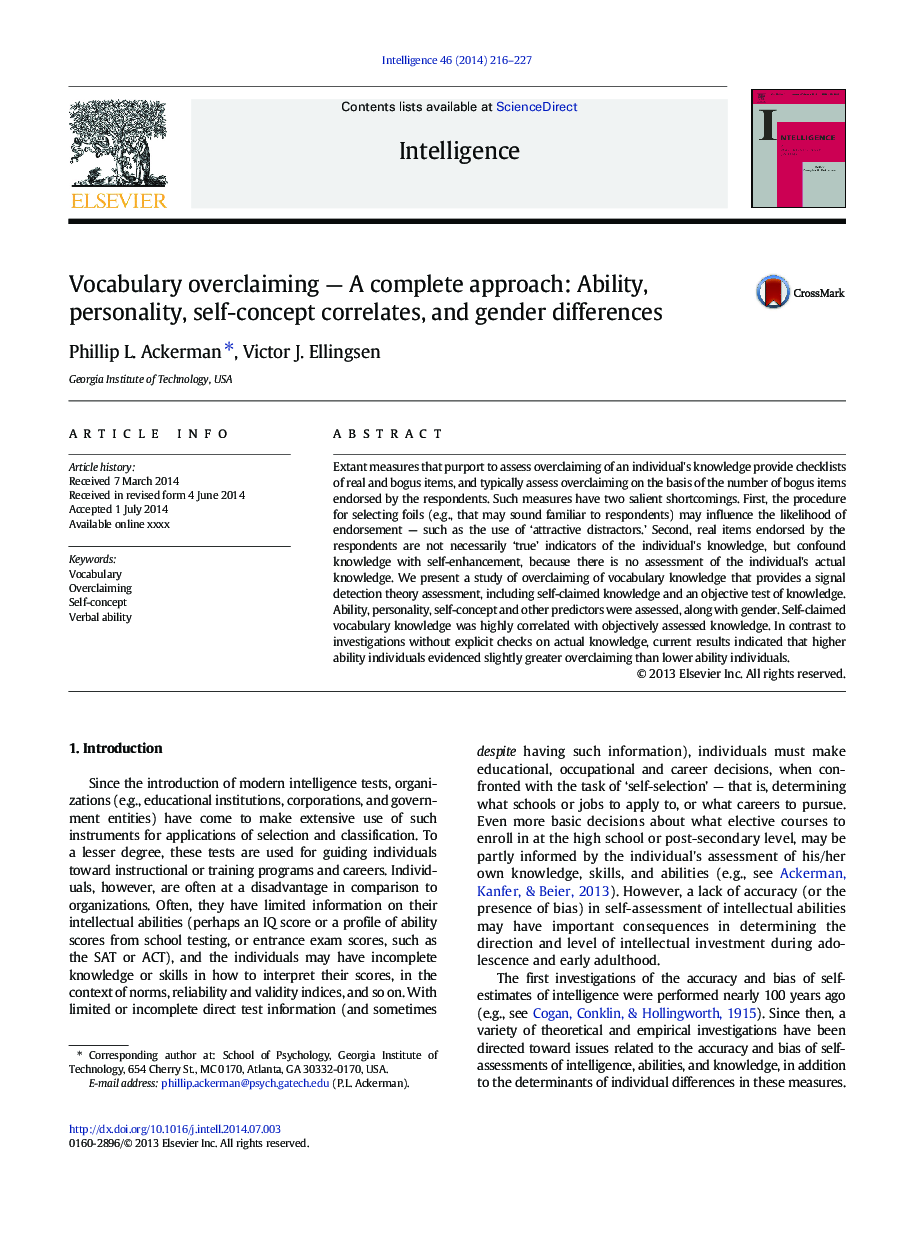| Article ID | Journal | Published Year | Pages | File Type |
|---|---|---|---|---|
| 7294366 | Intelligence | 2014 | 12 Pages |
Abstract
Extant measures that purport to assess overclaiming of an individual's knowledge provide checklists of real and bogus items, and typically assess overclaiming on the basis of the number of bogus items endorsed by the respondents. Such measures have two salient shortcomings. First, the procedure for selecting foils (e.g., that may sound familiar to respondents) may influence the likelihood of endorsement - such as the use of 'attractive distractors.' Second, real items endorsed by the respondents are not necessarily 'true' indicators of the individual's knowledge, but confound knowledge with self-enhancement, because there is no assessment of the individual's actual knowledge. We present a study of overclaiming of vocabulary knowledge that provides a signal detection theory assessment, including self-claimed knowledge and an objective test of knowledge. Ability, personality, self-concept and other predictors were assessed, along with gender. Self-claimed vocabulary knowledge was highly correlated with objectively assessed knowledge. In contrast to investigations without explicit checks on actual knowledge, current results indicated that higher ability individuals evidenced slightly greater overclaiming than lower ability individuals.
Related Topics
Social Sciences and Humanities
Psychology
Experimental and Cognitive Psychology
Authors
Phillip L. Ackerman, Victor J. Ellingsen,
